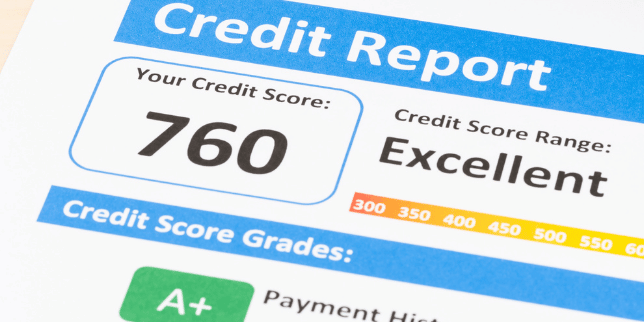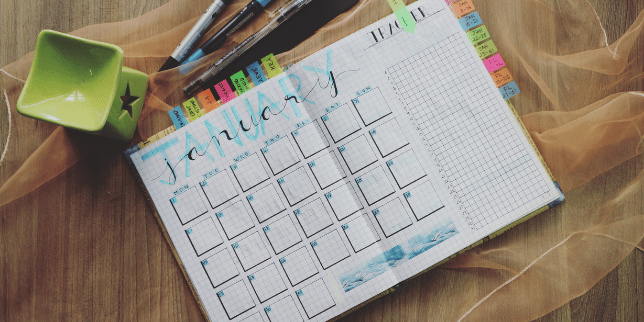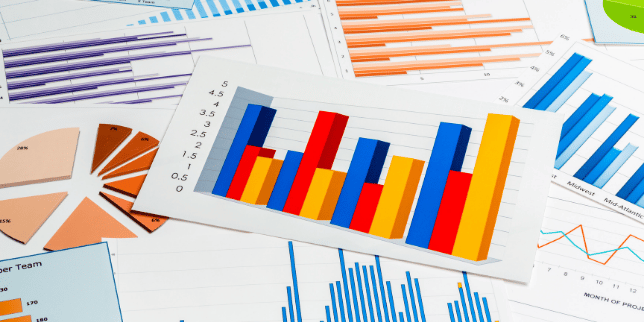Goal setting is one of the most powerful tools that you can use to you achieve what you want in life. The bad news is that most people fail to reach their goals and the main reason for that is that they don’t take consistent action. And if you’re someone who fails to follow through with your plan consistently, here’s one thing you can do – measure your progress.
Never underestimate the power of measuring your progress. Try to imagine watching a football game without the score. The players don’t know the time left and they have no idea who is winning. So what will happen?
Well, the game will become boring and the players will never play it full out. When a game lacks a scoring system, the players will become less committed to it.
However, when the moment scorekeeping begins, the players know that it’s game on. Competition only exists when there is a scoring system.
Hence, if you find it hard to stick to your goals and you often procrastinate on your plans, perhaps, you’re not measuring your progress.
By the way, measuring your goals and progress will be much easier with the right templates. This is true for businesses to display their data in an easy-to-understand manner. The use of dashboard templates are helpful for businesses to display information visually.
As for individuals, you may want to check out action plan templates here. Use the examples of the action templates to help you beat procrastination and increase your productivity.
Why You Need to Measure Your Goals

1. You become more focused.
When you measure your progress, you know your performance and you know what is working and what is not. More importantly, when you track your progress, the tracking itself makes you more focused.
If you don’t measure, highly likely, you will focus on your failures. You see, the goals that you want to achieve are far-fetched. Your goals are in the distant future. And if you don’t measure your daily progress, you will quickly forget about your goals.
Not only that, you will think that what you did is not working. And eventually, you will give up.
For example, if you want to lose weight and after exercising for a week, you stand on the weighing machine and found that you’re still at the same weight as a week before, you become dejected.
You will think that your effort of exercising for a week is not working. But things will be different when you measure your progress.
2. You know your performance
So how do you know if what you do is working or not working? The only way to find out is to track it.
After a few weeks or months of tracking, you will know what gives you the best results and what gives you the least. You can tell what activities are result-yielding and which are not.
Thus, you can then create a better plan and readjust your strategies to achieve your goals in a much more efficient way. It helps you achieve your goals faster.
3. You know what is the next step to take
Measuring your progress tells you what is the next step you need to take. The approach allows you to break down your bigger tasks into smaller ones.
A lot of people feel overwhelmed because their goals are big. And the best way to overcome this is to break down your big task into smaller tasks and track them.
For instance, if you have an important sales presentation you need to do next week, but you have no idea where to start and it makes you feel like there are so many things to do, list down your progress.
Create a list of things that you need to do and schedule the tasks. And then what you need to do next is to measure your progress. Check off all the tasks that you have done. This is how you accomplish your goals.
4. You become more motivated
When you measure your progress, you will see how far you have come. When you go through your day wasting time and without making any progress to reach your goals, how do you feel? Frustrated and dejected.
But when you spend your day making progress and moving forward. You complete tasks and you are making a difference, it makes you feel good. You will feel satisfied and extremely fulfilled.
This is why you need to measure your progress. It makes you feel motivated.
How to Measure Your Progress to Reach Your Goals

So now that you know why you need to track and measure your goals, but how do you do that?
Here are a couple of ways to help you do that:
1. The Power of a Compelling Scoreboard

Create a scoreboard. Yes, you need a scoreboard to help you keep track of your progress. Like in sports, they have a big scoreboard to show the audience and the players their score.
Without a scoreboard, you will never know if you are winning or losing. A scoreboard is important because it gives you the big picture of your performance.
So create your own customized scoreboard. Read my previous article for more ideas:
How to Track Your Goals: The 5 Fabulous Ways You Should Consider
2. The Calendar Tracking Method

If you think that creating a scoreboard is too much work, use the Calendar Method instead. This is one of the easiest and fastest ways to track your progress.
When you follow this method, you can tell if you are on track by taking a glance at your calendar.
Read this article to learn how to use the Calendar Method:
How To Be Consistent With The Jerry Seinfeld Calendar Method
3. Charts and Figures

First, you need to quantify your goals. And then break down your goals into smaller, measurable and actionable steps.
For example, if your goal is to save money or to pay down your debt, you can keep track of dollars saved or how much you have paid down. The key is to make your goals and tasks quantifiable.
In an online business, you can measure the number of subscribers you get each day or each week. You can also track the number of sales you receive on a daily basis too.
4. Checklist

I love the idea of using a checklist to measure my progress. Every week, I will list down all the activities that I need to do for the week on my planner. And each day, all I need to do is to act according to my plan.
When I completed a task, I will put a “tick” next to the task. And every time when I look at my planner, I know what I need to do, by when, and how I am progressing throughout the week.
In other words, my planner works like a map to me. It shows me if I’m making progress and it guides me to reach my goals.
If you want to discover the power of checklists, read this article.
5. A monthly or weekly personal review

A monthly or a weekly review helps a lot when it comes to measuring your progress. You have to understand that whatever gets measured, gets improved. If you don’t measure, you can never improve.
Most people spend time planning for their vacations and holidays, but they don’t even spend a couple of minutes planning and reviewing their lives.
So each week or each month, schedule a meeting with yourself. Do a monthly or a weekly review. James Clear, the famous blogger, and best-selling author said that he did an annual review each year by asking 3 simple questions:
- What went well this year?
- What didn’t go so well this year?
- What am I working toward?
Well, you don’t really need to wait until a year to do a review and readjust, you can do a weekly or a monthly review instead.
Change the questions:
- What went well this week/month?
- What didn’t go so well this week/month?
- What am I working toward next week/month?
Plus, add one more powerful question that will direct your results:
“What is the one thing I need to do today/tomorrow/next week/next month in order to get me closer to my goal?”
When you ask the above question, it gives you a sense of clarity about what you need to do. All you need to do then, is to work on the task.
A weekly or monthly review is important because it recalibrates your plan and performance.
Conclusion
Measuring your progress to effectively achieve your goals is an important step that most people don’t do. If you are serious about your goals and you are truly committed, I urge you to create your own measurement system right now.
Make a scoreboard and do a weekly review. You need to know your progress in order to do better. More importantly, you need to keep yourself on track of your goals. Without measuring your progress, there is no way you can know how you’re doing.



[…] How can you know if you are improving or getting better if you don’t measure your progress? […]
[…] Read: How to Measure Your Progress to Effectively Achieve Your Goals […]
[…] and ExcitingHow to Turn Your Goals into Actionable PlansOne More Time: How to Achieve Your GoalsHow to Measure Your Progress to Effectively Achieve Your GoalsGoal Setting Checklist: The 7 Elements Your Goal Must […]
[…] Read: How to Measure Your Progress to Effectively Achieve Your Goals […]
[…] I suggest you read this article to understand better: How to Measure Your Progress to Effectively Achieve Your Goals. […]
[…] How to Measure Your Progress to Effectively Achieve Your Goals […]
[…] This is why you don’t want to focus on the results, instead, you want to focus on the progress. Read this: How to Measure Your Progress to Effectively Achieve Your Goals […]
Can someone recommend Sexy Nightwear? Cheers x
[…] Read: How to Measure Your Progress to Effectively Achieve Your Goals […]
[…] to choose from when it comes to setting goals for your wellbeing; however, it’s crucial to make sure they’re realistic by utilizing measurable goal setting tactics. This will ensure that you’re able to maintain your […]
[…] https://stunningmotivation.com/measure-your-progress/ […]
[…] Read: How to Measure Your Progress to Effectively Achieve Your Goals […]
[…] setting achievable milestones, you are creating a roadmap towards success, and each small win will help to keep you motivated […]